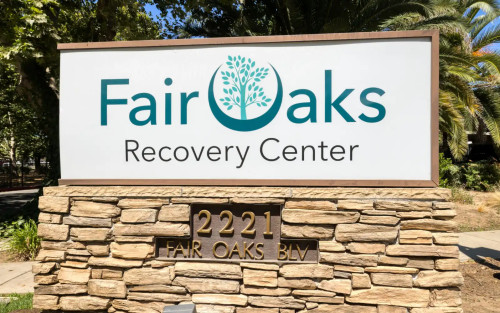

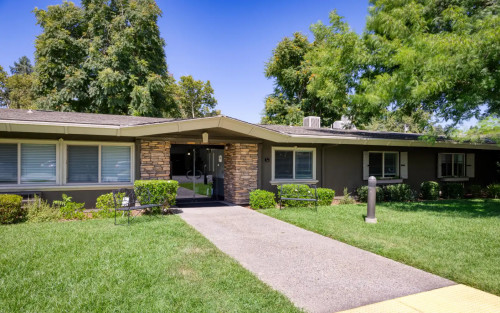




Fair Oaks Recovery Center
Treatment Focus
This center treats substance use disorders and co-occurring mental health conditions. Your treatment plan addresses each condition at once with personalized, compassionate care for comprehensive healing.
Primary Level of Care
Offering intensive care with 24/7 monitoring, residential treatment is typically 30 days and can cover multiple levels of care. Length can range from 14 to 90 days typically.
Claimed
Recovery.com has connected directly with this treatment provider to validate the information in their profile.
Treatment Focus
This center treats substance use disorders and co-occurring mental health conditions. Your treatment plan addresses each condition at once with personalized, compassionate care for comprehensive healing.
Primary Level of Care
Offering intensive care with 24/7 monitoring, residential treatment is typically 30 days and can cover multiple levels of care. Length can range from 14 to 90 days typically.
Provider's Policy
We accept most healthcare insurance.
Fair Oaks Recovery Center
Fair Oaks Recovery Center
About Fair Oaks Recovery Center
Fair Oaks Recovery Center uses a whole-person care approach to treat addiction and co-occurring mental health conditions. They earned chemical dependency recovery status (a robust status signifying innovative and notable expertise) from the state of California and provide medically supervised detox, residential care, and outpatient services at their private, comfortable recovery center. A specialized program meets the unique needs of veterans and first responders.
Monitoring and Support From Detox to Outpatient
Fair Oaks Recovery Center provides medically supervised detox from drugs and alcohol. Nurses and therapists remain available throughout detox to offer support and monitoring. Medication-assisted treatment, prescribed as needed, aids with withdrawal symptoms. Clients transition seamlessly into their next determined steps in treatment—residential, day treatment, or intensive outpatient. Day treatment includes 6 hours of daily treatment, 5 days a week. They have morning, afternoon, and evening availability for intensive outpatient, which meets 3+ days weekly.
Experienced Staff Providing Evidence-Based Therapies
Fair Oaks Recovery Center’s staff includes medical doctors, a psychiatrist, clinicians, and nursing staff. They take a collaborative, positive psychology approach to treatment, providing group therapies, 1:1 therapy, and family therapy. Clients meet with their therapist 1:1 at least once a week. Clients also join therapist-led process groups, educational groups, and learn tools for relapse prevention and coping. Fair Oaks Recovery Center allows personal phone access on an as-needed basis.
Specialized Care for Veterans and Alumni
Fair Oaks Recovery Center offers a specialized group for veterans and first responders, called Tactical Recovery. It offers trauma-informed care with specific therapy groups for veterans and first responders, 24-hour nursing and psychiatric care, and a group for grief and loss. Tactical Recovery also offers Seeking Safety trauma treatment, anger management groups, and a group for socialization and interpersonal relationships. After treatment, all clients gain access to a strong alumni program, which meets weekly and has monthly events. Alumni also have access to a recovery app and receive continued check-ins from staff.
Center Overview
Treatment Focus
This center treats substance use disorders and co-occurring mental health conditions. Your treatment plan addresses each condition at once with personalized, compassionate care for comprehensive healing.
Joint Commission Accredited
The Joint Commission accreditation is a voluntary, objective process that evaluates and accredits healthcare organizations (like treatment centers) based on performance standards designed to improve quality and safety for patients. To be accredited means the treatment center has been found to meet the Commission's standards for quality and safety in patient care.

Insurance Accepted
Cash Pay Rates
Estimated Cash Pay Rate
Center pricing can vary based on program and length of stay. Contact the center for more information. Recovery.com strives for price transparency so you can make an informed decision.
Meet Your Care Team

Daman Mott
Chief of Nursing Officer
MSN, BSN

Dr. Sarfaraz Jasdanwala
Medical Director
MD
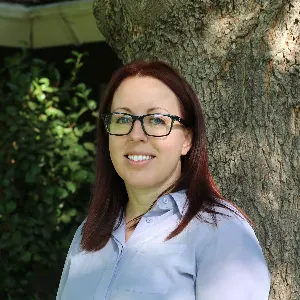
Melissa White
Human Resource Director
SHRM-CP

Theresa Russell
Clinical Supervisor
DR AD, AUDCCIII-CS

Jeff Wondoloski
Director of Admissions
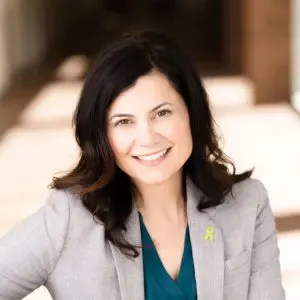
Kristi Kline Berryhill
Chief Executive Officer
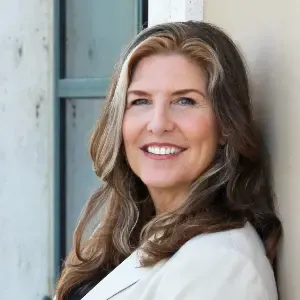
Melissa Flagstad
Director of Business Development
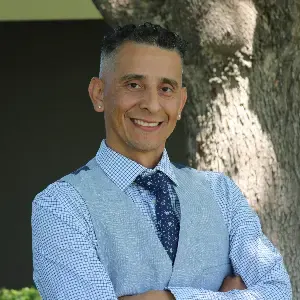
Raul Valdivia
Director of Plan Operations




Levels of Care







Your Care Options
Specializations
Day Treatment
In a PHP, patients live at home but follow an intensive schedule of treatment. Most programs require you to be on-site for about 40 hours per week.
Intensive Outpatient Program
In an IOP, patients live at home or a sober living, but attend treatment typically 9-15 hours a week. Most programs include talk therapy, support groups, and other methods.
Veterans
Patients who completed active military duty receive specialized treatment focused on trauma, grief, loss, and finding a new work-life balance.
Residential
In a residential rehab program, patients live onsite, with access to daily treatment and 24-hour care. An average stay is 30-90 days.
Who We Treat
Men and Women
Men and women attend treatment for addiction in a co-ed setting, going to therapy groups together to share experiences, struggles, and successes.
Veterans
Patients who completed active military duty receive specialized treatment focused on trauma, grief, loss, and finding a new work-life balance.
Approaches
Evidence-Based
A combination of scientifically rooted therapies and treatments make up evidence-based care, defined by their measured and proven results.
Personalized Treatment
The specific needs, histories, and conditions of individual patients receive personalized, highly relevant care throughout their recovery journey.
Twelve Step
Incorporating spirituality, community, and responsibility, 12-Step philosophies prioritize the guidance of a Higher Power and a continuation of 12-Step practices.
Therapies
1-on-1 Counseling
Patient and therapist meet 1-on-1 to work through difficult emotions and behavioral challenges in a personal, private setting.
Meditation & Mindfulness
A practiced state of mind that brings patients to the present. It allows them to become fully aware of themselves, their feelings, and the present moment.
Trauma-Specific Therapy
This form of talk therapy addresses any childhood trauma at the root of a patient's current diagnosis.
Family Therapy
Family therapy addresses group dynamics within a family system, with a focus on improving communication and interrupting unhealthy relationship patterns.
Motivational Interviewing
Based on the idea that motivation to change comes from within, providers use a conversational framework to discover personalized methods for change.
Relapse Prevention Counseling
Relapse prevention counselors teach patients to recognize the signs of relapse and reduce their risk.
Twelve Step Facilitation
12-Step groups offer a framework for addiction recovery. Members commit to a higher power, recognize their issues, and support each other in the healing process.
Conditions We Treat
Anger
Although anger itself isn't a disorder, it can get out of hand. If this feeling interferes with your relationships and daily functioning, treatment can help.
Post Traumatic Stress Disorder
PTSD is a long-term mental health issue caused by a disturbing event or events. Symptoms include anxiety, dissociation, flashbacks, and intrusive thoughts.
Stress
Stress is a natural reaction to challenges, and it can even help you adapt. However, chronic stress can cause physical and mental health issues.
Trauma
Some traumatic events are so disturbing that they cause long-term mental health problems. Those ongoing issues can also be referred to as "trauma."
Substances We Treat
Alcohol
Using alcohol as a coping mechanism, or drinking excessively throughout the week, signals an alcohol use disorder.
Benzodiazepines
Benzodiazepines are prescribed to treat anxiety and sleep issues. They are highly habit forming, and their abuse can cause mood changes and poor judgement.
Co-Occurring Disorders
A person with multiple mental health diagnoses, such as addiction and depression, has co-occurring disorders also called dual diagnosis.
Cocaine
Cocaine is a stimulant with euphoric effects. Agitation, muscle ticks, psychosis, and heart issues are common symptoms of cocaine abuse.
Drug Addiction
Drug addiction is the excessive and repetitive use of substances, despite harmful consequences to a person's life, health, and relationships.
Ecstasy
Ecstasy is a stimulant that causes intense euphoria and heightened awareness. Abuse of this drug can trigger depression, insomnia, and memory problems.
Heroin
Heroin is a highly addictive and illegal opioid. It can cause insomnia, collapsed veins, heart issues, and additional mental health issues.
Psychedelics
Hallucinogenic drugs—like LSD—cause euphoria and increased sensory experiences. When abused, they can lead to depression and psychosis.
Methamphetamine
Methamphetamine, or meth, increases energy, agitation, and paranoia. Long-term use can result in severe physical and mental health issues.
Languages
Aftercare
Care Designed for Your Needs
Personal Amenities
Activities
Yoga
Yoga is both a physical and spiritual practice. It includes a flow of movement, breathing techniques, and meditation.

What people are saying
Treatment
3.4
Accommodations
3.2
Food & Nutrition
3.8
Value
3.5
Djo
Reviewed 06/22/19
Review from Rehabs.com
dk
Reviewed 09/29/18
Review from Rehabs.com
Marquese Williams no
Reviewed 10/03/22
Review from Rehabs.com
M E
Reviewed 06/17/16
Review from Rehabs.com
Anonymous
Reviewed 07/08/16
Review from Rehabs.com





